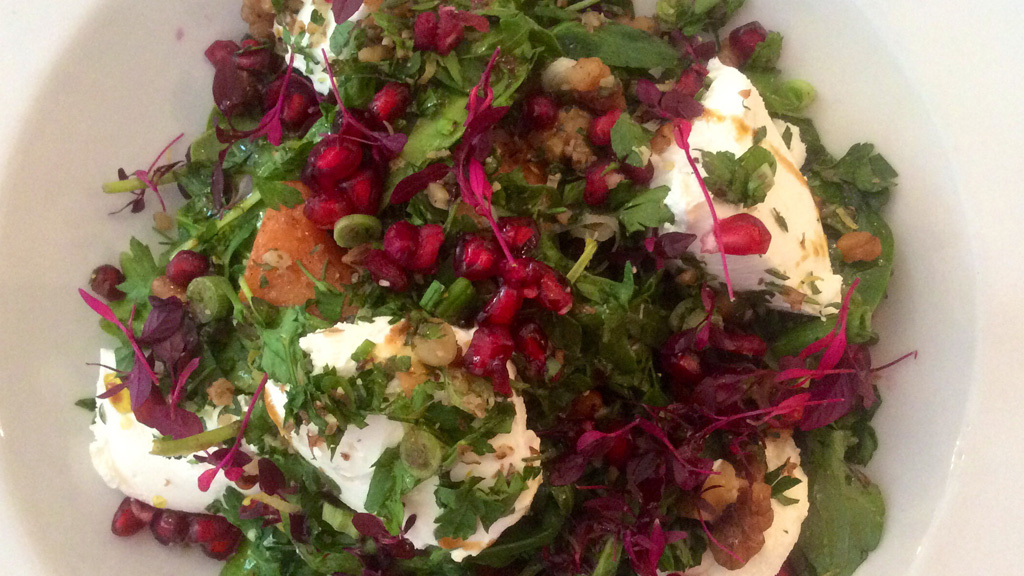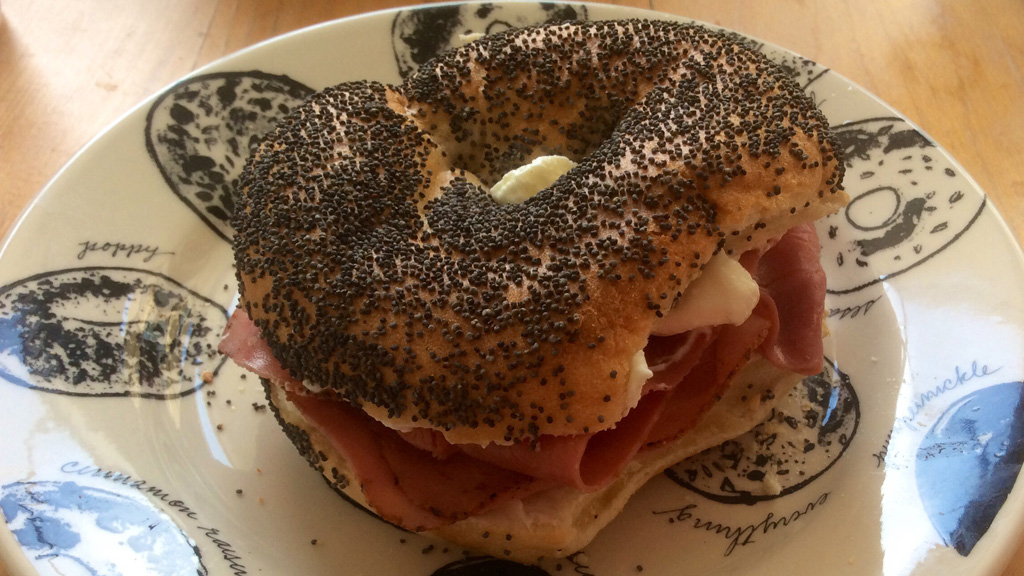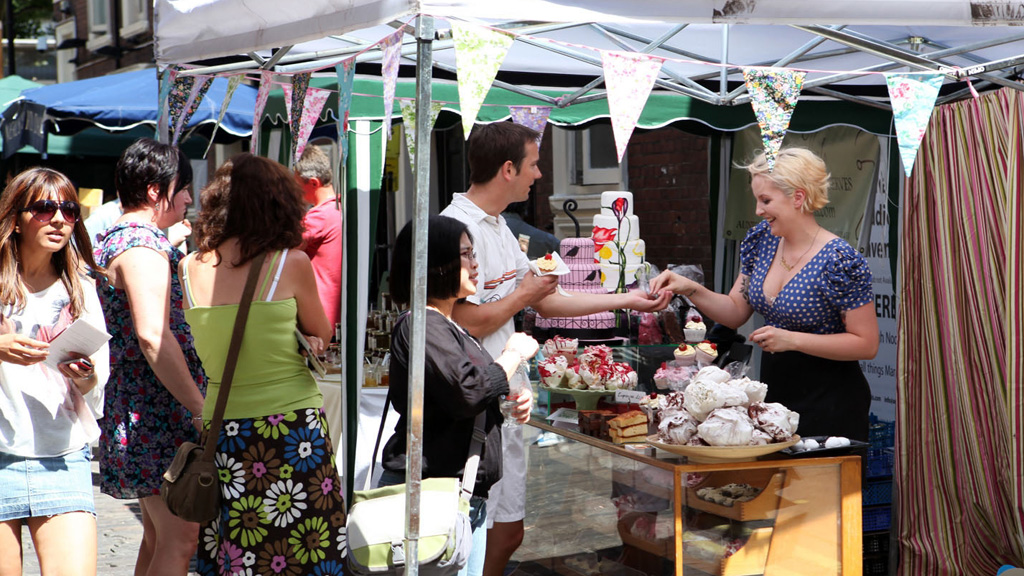From school lunch to office lunch: beyond the sad sarnie
Bored with your dreary al-desko sandwich? As the government pledges to make school lunches healthier, what kind of choices are we making for our office lunch? And how could we do better?

Long gone are the days of the lazy working lunch, the proper cooked meal with a pint of beer or a glass or two of wine. Nowadays for most people it is a hasty sandwich grabbed from a nearby supermarket, a plastic tub of soup, or a reheated tupperware of last night’s slightly sad looking leftovers.
In this time-poor, attention-deficit and financially-challenged society, it is all about convenience: whatever is nearest, or cheapest, or easiest to eat. And who can blame us?
But if habits are formed in childhood, then the promises to reform school lunches might – quite literally – bear fruit. If children learn to make healthy, better informed choices over what they should eat, that might encourage better decisions when they start their working lives.
We spoke to some chefs and food entrepreneurs who are trying to change Britain’s lunch habits – one sandwich at a time.

Laoise Casey is now a chef-de-partie at one of London’s top restaurants, The Dairy: but she spent seven years behind a desk as a human resources manager. “I spent many a day eating a tired ham sandwich on the go!” She has just landed a column in the capital’s Evening Standard newspaper, showing office workers just what they could whip up, with a little help.
She has come up with a series of lunchbox ideas based on signature dishes at the restaurants where she has worked, all of it designed to be quick and simple. “I understand people don’t have a lot of time – mine is certainly precious,” she says.
I spent many a day eating a tired ham sandwich on the go! Laoise Casey, chef at The Dairy
“Often lunch can be the only time people get to relax a little bit with their colleagues. I think also people might be put off doing their own lunches, as they don’t have any ideas and find it easier just to grab a sandwich. Hopefully I can give them a bit of inspiration.”
But Britain is becoming home to an increasingly vibrant street food scene – offering those who are still reluctant to get busy in the kitchen the chance to try a world of different cuisines. At daily markets like London’s Whitecross Street, or the pop-up stalls which form part of the Kerb collective, you can eat your way around the globe in a single lunchbreak.

Which is all very well if you are lucky enough to work five minutes away from one of these sites. For others, there could soon be the prospect of a street food delivery. A new company called City Pantry is trying to bring together food from a huge variety of street food vendors, which offices can order as a catering package instead of the usual sandwich platter.
Stuart Sunderland says they have tried to work with the most innovative and best food producers they can find, in order to help people see beyond their normal routine. “The big issue is variety. People complain that there are only a few chains to choose lunch from,” he said.
“We want to make it really easy for people to break their habits and get involved.” Food trucks they work with offer everything from spicy New Orleans gumbo to French duck confit burgers; individual dishes sell for around £6 or £7 each, admittedly rather more expensive than the “meal deal” on offer at supermarkets or cafe chains.
Market forces
Is all this a rather niche market, then – something for wealthy Londoners who still have some disposable income to spare? Not so, says Jonathan Knight, who took his street food business up to Leeds as part of a rotating group of traders at the city’s Trinity Kitchen.
Initially, he said, he was worried about the price point, but soon found that Leeds customers were willing to spend more than people in the capital. “They found it really refreshing and exciting. We got a fantastic response.”
His food truck – Original Fry Up Material – began by selling hand crafted breakfast food, like eggs Benedict and sausage muffins. But in Leeds, the big sellers were burgers and chips: not traditionally seen as a healthy option. “I wouldn’t tell people to eat that kind of thing every day,” says Knight.

But it is all a matter of balance, Knight said. “My mum used to say there’s no such thing as good or bad food, just good or bad diets.” The Leeds burgers, along with all the OFM menu, were sourced from the best local Yorkshire suppliers they could find.
Offering more variety, as well as quality, he suggested, was the key to breaking old habits. “If it all looks interesting and you can see it being freshly made – that’s how you’ll override that predisposition towards convenience.”
My mum used to say there’s no such thing as good or bad food, just good or bad diets. Jonathan Knight, OFM
But even if your early years were a bit of a culinary disaster zone – it’s never too late. City Pantry’s Stuart Sunderland confesses that he spent most of his school years eating chips and salad cream, but fortunately things have vastly improved.
“I think what is more important is the message which goes with healthy food. If we focused more on how great things taste, then kids will be more inclined to eat a better lunch”.
The lesson, then, for school meals and beyond? Less fat, less sugar, less processed food, for sure – but most importantly, more quality and more choice, and above all – balance. A motto for life, and not just for lunch.